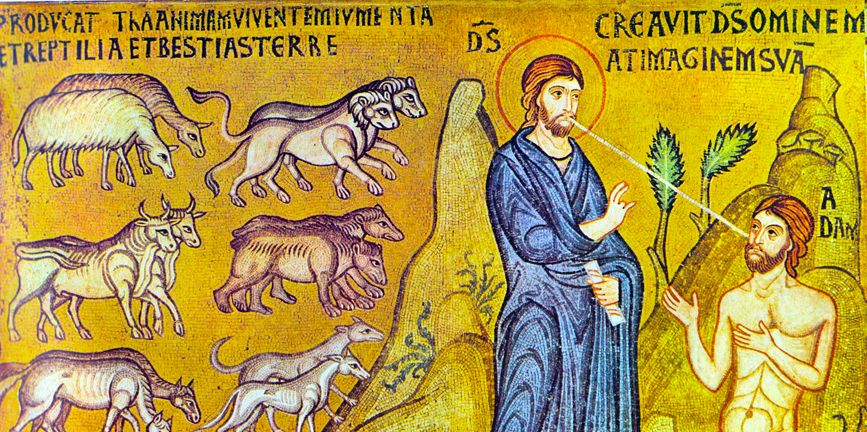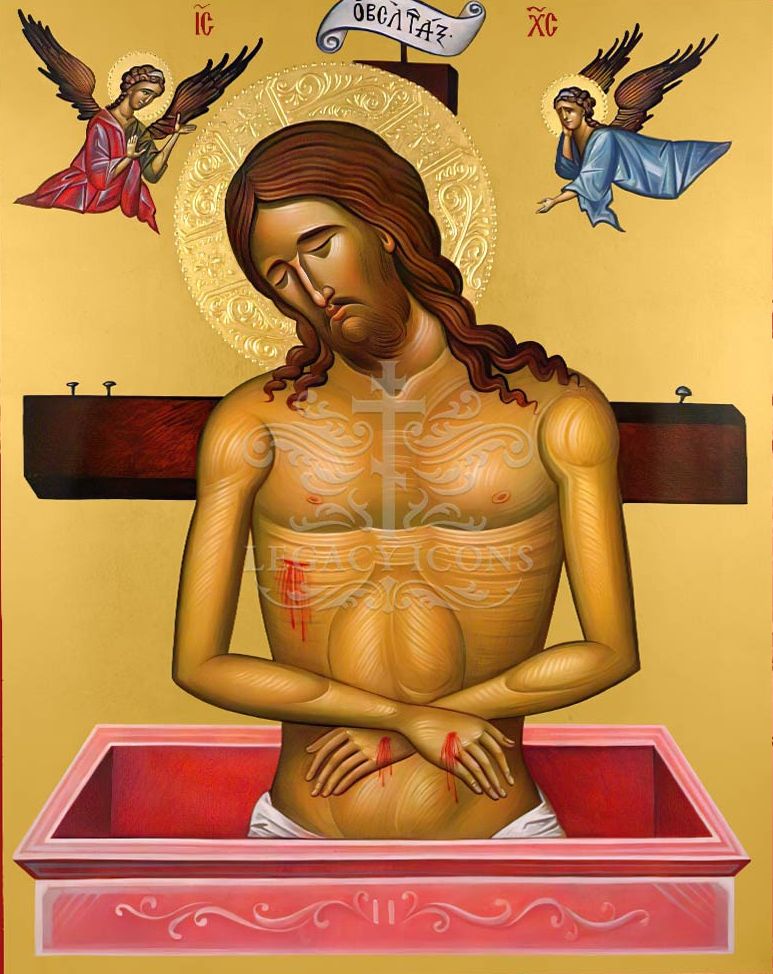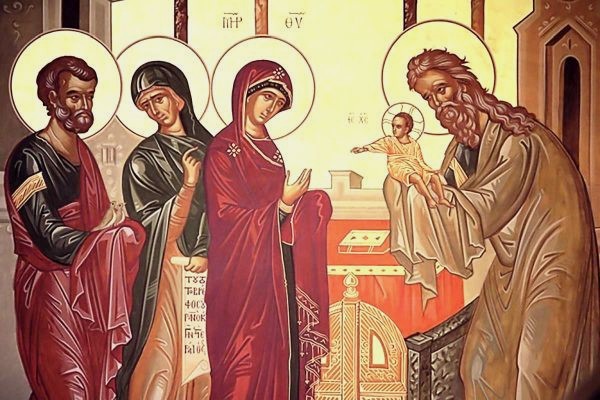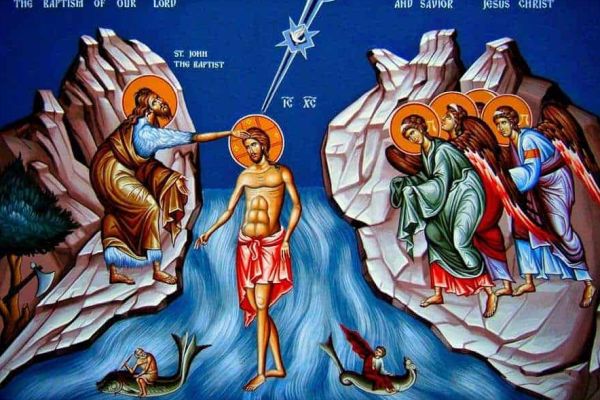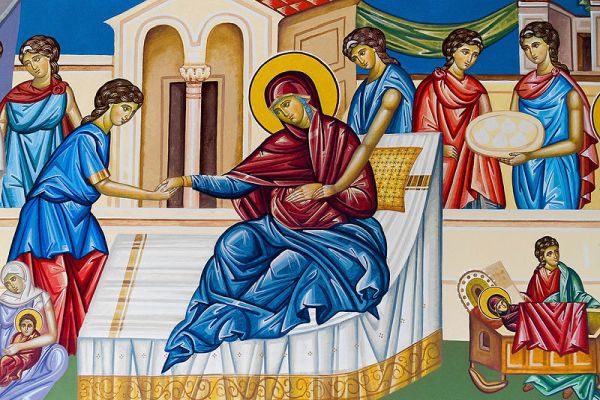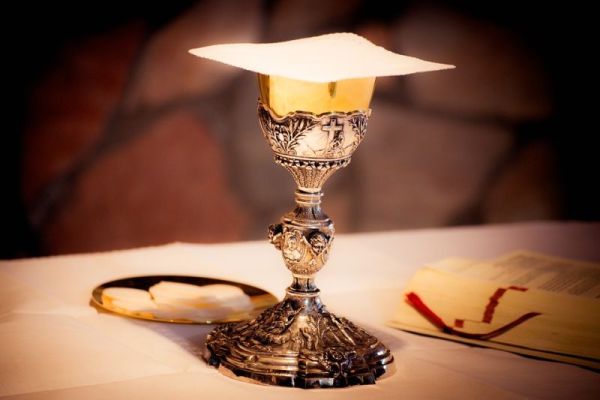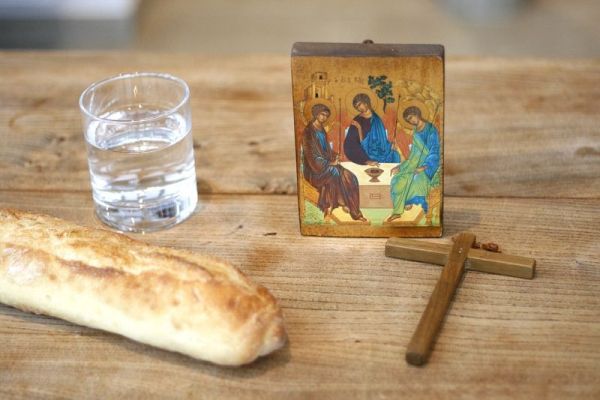Partaking of the Divine
Nature
Why did God make man? God being the Creator, He must have had a purpose for creating man.
If we are to understand the purpose of our lives, we should seek answers from our creator. The source of our information comes from His Word, the Holy Scripture. In the very first book, in Genesis, we read the statement: ‘‘Then God said, ‘Let us make man in our image, according to our likeness; let them have dominion over the fish of the sea, over the birds of the air, and over the cattle, over all the earth and over every creeping thing that creeps on the earth’’’ (Genesis 1:26).
So, here we have the answer! God made us in His image that we may reflect His image and His nature in the visible realm! God is invisible. Man, His creation, like the moon reflecting the sun, is supposed to show forth or reflect the nature of the creator, God. All our questions about life are answered when we understand that our creator, God, made us to live a life of beauty and bliss, as we allow Him to live through us; as Apostle Peter said, we “partake of His divine nature.”
What does the Scripture teach about Partaking of the divine nature of Christ?
St Peter, the great apostle says, “As His divine power has given to us all things that pertain to life and godliness, through the knowledge of Him who called us by glory and virtue, by which have been given to us exceedingly great and precious promises, that through these you may be partakers of the divine nature, having escaped the corruption that is in the world through lust (2 Peter 1:3-4). This is demonstrated by Jesus who is our perfect example of how God intended for us to live.
He lived on earth for thirty-three-and-a-half years as a perfect man and at the same time as God Almighty in flesh. He was fully God and fully man. He was God; He is God; He is the creator God. But how did He live as the God-man on earth?
The Scripture says, “Who being in the form of God, did not consider it robbery to be equal with God, but made Himself of no reputation, taking the form of a bondservant, and coming in the likeness of men.” (Philippians 2:6-7). In His person, He was still God when He lived on earth. God can never cease to be God. But He chose not to use His divine powers while living here on earth.
Partaking of the divine nature or godliness is a mystery. While living as a man on earth, the God-like nature or behaviour of Christ, a life without ever committing sin, was not because He was functioning as God. In order to be seen, He had to become a man. “But made Himself of no reputation, taking the form of a bondservant, and coming in the likeness of men. And being found in appearance as a man, He humbled Himself and became obedient to the point of death, even the death of the cross” (Philippians 2:7-8). Jesus allowed His Father as His God to be the cause (origin) of all His behaviour as a man, so that Jesus’ behaviour, godliness and nature as a man would be derived directly and exclusively from the activity of the Father in and through Him.
In all of these, what we see is that He emptied Himself of all His divine powers and was completely obedient and directed by His Father. The invisible God, the Father, was operating visibly through His Son, who was a man. And that is godliness or theosis.
A call to follow the example of Christ
And now we are given the privilege to grow into the likeness of Christ (Romans 8:29) who is the image of God. The more we grow, the more we learn how lost we are from attaining the perfection we see, and this growth is a constant spiritual journey becoming more and more like the Lord Jesus.
“I beseech you therefore, brethren, by the mercies of God, that you present your bodies a living sacrifice, holy, acceptable to God, which is your reasonable service. And do not be conformed to this world, but be transformed by the renewing of your mind, that you may prove what is that good and acceptable and perfect will of God”(Romans 12:1-2).
A total dependence on God for everything is a choice we make. We too, by our absolute and total surrender to God—just as innocent children depend on their mothers—can enter into the secret chamber to be guided by His voice and receive power to live godly lives through our earthen vessels.
God allows us to know Him through His divine energies—those actions through which He reveals Himself to us. His love, mercy, grace, compassion, redemption, power and Christ living in us and our life in Him—are proof enough of the truth that, we live and our being is in Him, through Him, for Him. “For whom He foreknew, He also predestined to be conformed to the image of His Son, that He might be the firstborn among many brethren.” (Romans 8:29).
The Lord Jesus Christ is our example as to how to live on earth. “We are called to follow in the footsteps of Him who committed no sin. “For to this you were called, because Christ also suffered for us, leaving us an example, that you should follow His steps: ‘Who committed no sin, Nor was deceit found in His mouth.’”(1 Peter 2:21-22).
What is the result of partaking in the Divine Nature of Christ?
We are talking about the result of our communion with God and the results of our partaking of the divine nature. It is obvious that if our life is guided by divine values, then surely all that we say and do will have the nature of God in it. In other words, we become godly on an ongoing basis. The most obvious thing that will happen is manifestation of the fruit of the Holy Spirit. But the fruit of the Spirit is love, joy, peace, longsuffering, kindness, goodness, faithfulness, gentleness, self-control. Against such there is no law. And those who are Christ’s have crucified the flesh with its passions and desires. If we live in the Spirit, let us also walk in the Spirit.(Galatians 5:22-25).
Love: The Scripture says, “God is love.” (1 John 4:8). This tells us that in everything God does, there is nothing that does not originate in His eternal love. If someone is in real communion with God, it becomes evident in his or her love toward God and man( 1 John 4:20).
Humility: One of the obvious changes that will take place in our lives while in communion with God is the quality of being humble. Jesus said, “come to me, all you who are weary and burdened, and I will give you rest. Take my yoke upon you and learn from me, for I am gentle and humble in heart, and you will find rest for your souls. For my yoke is easy and my burden is light.”(St. Matthew 11:28-30).
Read Psalm 131, “Lord, I am not proud and haughty. I don’t think myself better than others. I don’t pretend to “know it all.” I am quiet now before the Lord, just as a child who is weaned from the breast … O Israel, you too should quietly trust in the Lord— now, and always.” This is true. One cannot be in fellowship with God, partaking of the divine nature, and yet maintain a proud and arrogant life. It is impossible not to reflect the true heart of brokenness and humility if we are in communion with God.
Suffering: Another outcome and blessedness of knowing God is seen in the power of God that works in and through us in suffering. He says, “For to you it has been granted on behalf of Christ, not only to believe in Him, but also to suffer for His sake.” (Philippians 1:29).
Reading of 2 Corinthians 11:16–28 will show us the extend of physical and emotional turmoil St Paul had to go through. And yet the Apostle Paul says, “Yet indeed I also count all things loss for the excellence of the knowledge of Christ Jesus my Lord, for whom I have suffered the loss of all things, and count them as rubbish, that I may gain Christ.”(Philippians 3:8).
Passion: Read the book of Acts to see the normal life of people that knew God and how they were used by God, supernaturally by the power of the Holy Spirit. “But you shall receive power when the Holy Spirit has come upon you; and you shall be witnesses to Me in Jerusalem, and in all Judea and Samaria, and to the end of the earth.”(Acts1:8).
St Paul had this intimate fellowship with the divine, which resulted in his lifelong passion to reach those living without knowing the love of Christ.
Think about it. Why did Jesus come to this earth? He came to “seek and save that was lost.” And He died on the Cross to save sinners. The Father sent Him for this purpose. For God so loved the world that He gave His only begotten Son, that whoever believes in Him should not perish but have everlasting life. For God did not send His Son into the world to condemn the world, but that the world through Him might be saved (St. John 3:16-17).
Yes, we are called to be partakers of the divine nature. If so, we will manifest the very nature of our loving God for those that are outside the fold of the Good Shepherd. This also means that we pray for others to know Him, we go ourselves as His witness and pray that our children will serve Him.
How to experience this life of partaking in the Divine Nature of Christ?
Deny Self: One of the first spiritual qualities you need to embrace to attain godliness is denial of self. I have been crucified with Christ; it is no longer I who live, but Christ lives in me; and the life which I now live in the flesh I live by faith in the Son of God, who loved me and gave Himself for me. (Galatians 2:20). Denial of self means total submission to the Lordship of Christ.
Solitude: In Isaiah Chapter 6, when the prophet of God saw the glory of God, he suddenly realised his nothingness in the presence of God. He was alone with God. His heart longed for God’s touch and that is what happened. And the partaking in the divine nature took place. God touched his being, and everything turned new.
Unless we are willing to forsake all, like our powerful self, world, sins and even our own life, we still will not be able to enter into the beauty of Christ. I encourage you to take some practical steps to make sure you spend enough time alone in solitude with God- may be one day in six months or even half a day each month, or three days in a year just to be with God; alone. It’s when our solitude brings us to our nothingness, that God can be all in all in us, through us.
Brokenness: Our choosing the life of brokenness is essential if we want to experience ‘Partaking of the Divine Nature of Christ’.” For thus says the High and Lofty One Who inhabits eternity, whose name is Holy: I dwell in the high and holy place, With him who has a contrite and humble spirit, To revive the spirit of the humble, And to revive the heart of the contrite ones (Isaiah 57:15). Unbrokenness is a fearful thing. All of God’s goodness, mercy, healing, love and power (divine nature) is hindered by the unbroken self.
Submission: As we live this life of constant communion with God, one of the most obvious things we should do is to live in submission to the Lord and those He places in authority over us. We must guard our hearts from any form of rebellion or insubordination which can create massive damage to our inner life and block the flow of God’s life through us.
Sacramental Life: Sacramental life can be understood only through a life of prayer. The Scripture says, “Pray without ceasing.” That is, pray all the time. It is a non-stop life habit, like breathing. One of the obvious evidences of communion with God and being partakers of the divine nature is seen in the conversation that is constant between the visible man and the invisible infinite God. Is this not what we see in the life of the man Jesus when He said, “I do not seek my own will, but the will of the Father who sent me.”(St. John 5:30) It simply means His inner ears were always in tune with the Father to hear what the Father wanted Him to do and say.
Pray always. When you cook, clean vessels, when you are in the office at your desk, while walking, always be in conversation with Him. This is theosis or partaking of His nature.
During this season of Great Lent, let it be our prayer and goal that we will learn and grow to become partakers of the Divine Nature of Christ.
